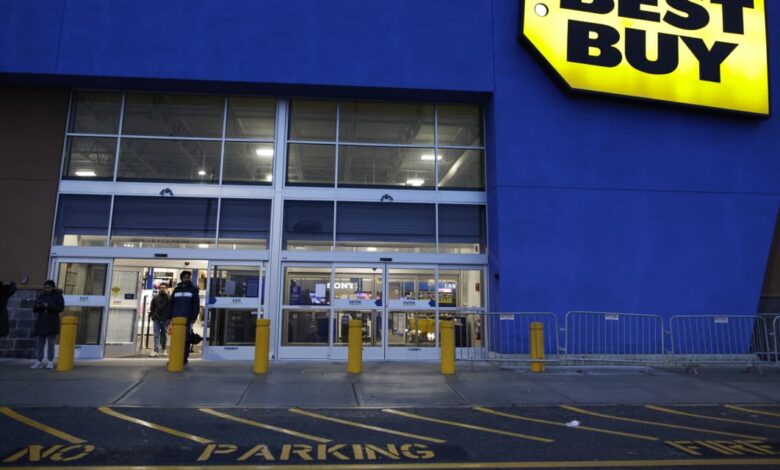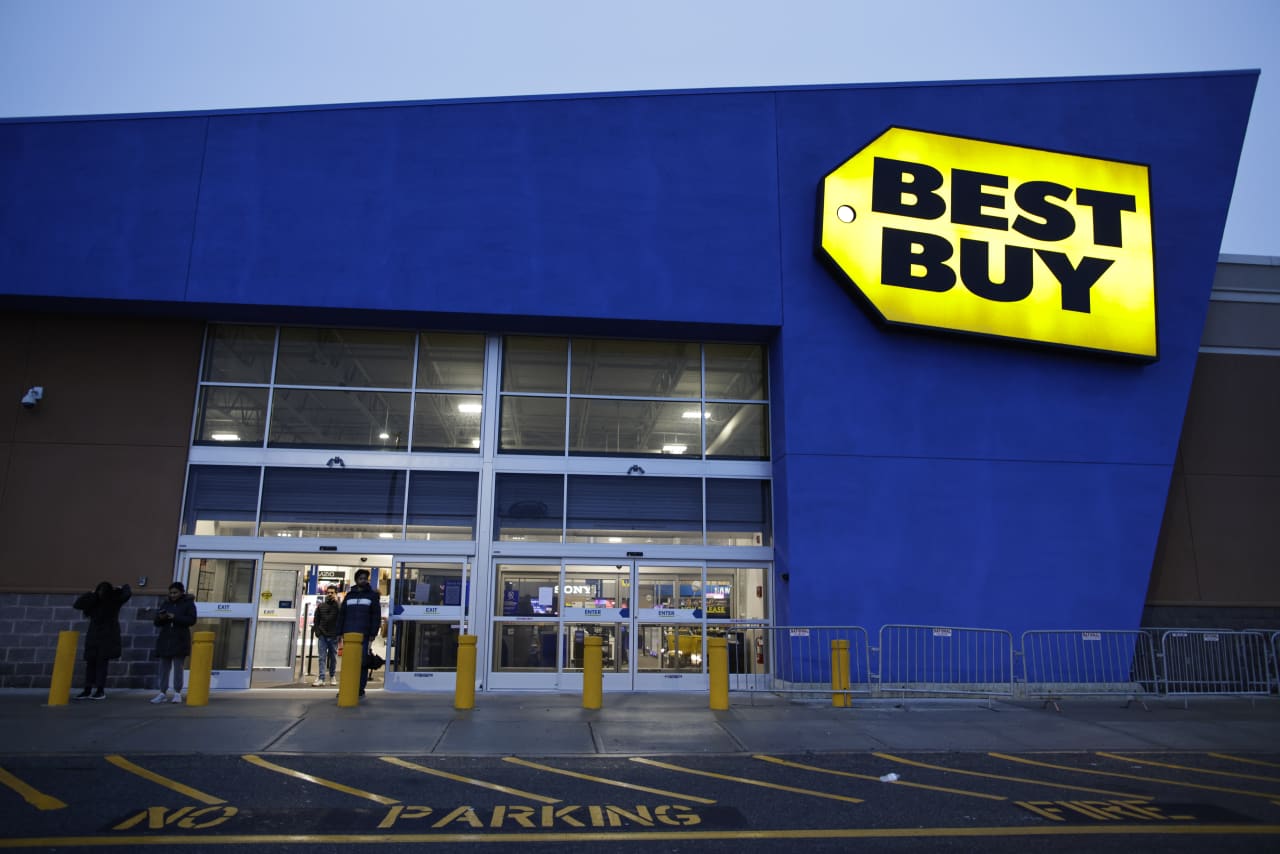
Shares of Best Buy Inc. climbed toward a seven-month high Thursday after the retailer reported quarterly results that beat expectations, as growth in gaming sales helped offset continued pressure on other consumer electronics sales, including smartphones and tablets.
The company said gross margin got a boost from an increase in its paid membership base, which helped offset unfavorable margin rates on certain products.
The stock
BBY,
surged 4.2% in premarket trading, putting it on track to open around the highest closing prices seen since July 31.
Regarding the holiday sales period, Chief Executive Corie Barry said on the post-earnings call with analysts that Black Friday and cyber week performances were in line with expectations, but the “sales lull” in December was even steeper than expected.
“Then customer demand strengthened and was higher than we expected during the four days before Christmas,” Barry said, according to a FactSet transcript.
For the fiscal fourth quarter to Feb. 3, net income fell to $460 million, or $2.12 a share, from $495 million, or $2.23 a share, in the same period a year ago.
Excluding nonrecurring items, such as $169 million in restructuring charges related to employee-layoff benefits, adjusted earnings per share of $2.72 beat the FactSet consensus of $2.52.
Gross margin improved to 20.5% from 20.0%, as an increase in the U.S. gross profit rate to 20.4% from 19.8% offset a decline in international to 21% from 21.7%.
Revenue slipped 0.6% to $14.65 billion, but was above the FactSet consensus of $14.56 billion. Overall same-store sales, or sales of stores open at least a year, declined 4.8% to beat the FactSet consensus of a 5.4% decline.
That marked the ninth straight quarter of year-over-year declines in revenue and same-store sales.
In the U.S., revenue fell 0.9% to $13.4 billion while same-store sales declined 5.1%, beating expectations of a 5.4% fall.
The company said the biggest reason for the drop in U.S. same-store sales was weakness in home theater, appliances mobile phones and tablets, while gaming sales showed growth.
For international, revenue rose 2.7% but same-store sales fell 1.4%.
Looking ahead, the company expects fiscal 2025 adjusted EPS of $5.75 to $6.20 and revenue of $41.3 billion to $42.6 billion, compared with the FactSet consensus for EPS of $6.16 and revenue of $42.33 billion.
Barry explained on the call why she believes there continues to be pressure on the retail overall, and on the consumer electronics industry more specifically.
First, she said while inflation is slowing, prices for basics like food and lodging are still a lot higher than they were, and consumers have to prioritize their spend decisions.
Second, Barry said, consumers are still choosing to spend more on services and experiences, such as vacations, rather than goods.
Another reason is that the housing market has been “stagnant.”
Fourth, consumer electronics sales benefited significantly from a “pull-forward” of demand during the first two years of the COVID pandemic. Basically, the market for consumer electronics is reverting to the mean.
There was also an issue with the supply chain, that lowered the number of consumer-electronics products in the marketplace.
But on the bright side, Barry said these issues are “transient in nature.” And there are several things to suggest demand will improve this year, she said, such as continued low unemployment, growing consumer confidence and the beginnings of a housing-market rebound.
She expects this year to be one of “increasing industry stabilization,” and will focus on sharpening the customer experience and industry pricing.
The stock has gained 12.6% over the past three months through Wednesday, while the Consumer Discretionary Select Sector SPDR ETF
XLY,
has tacked on 8.4% S&P 500
SPX,
has advanced 11.4%.
Source link






